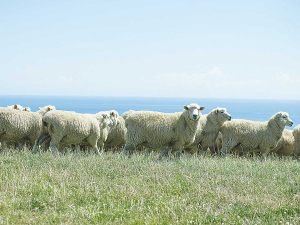A rapid antigen test (RAT) aimed at early detection of facial eczema (FE) in ruminants may help manage a disease that costs the New Zealand economy millions of dollars each year.
The Ministry for Primary Industries’ Sustainable Food and Fibre Futures fund is investing more than $35,000 in a project with Tokaora Diagnostics to develop a prototype FE RAT and undertake field testing. The test could be used with sheep, cattle and deer, but initial trials will focus on dairy cattle.
FE is caused by a toxin found in fungal spores that grows on dead and dying plant matter in warm, moist conditions The damage is does to the liver causes the body to be unable to process waste and, along with a breakdown of chlorophyll in the skin, leads to heightened photosensitivity. This gives the pronounced sunburn and cracked skin that gives the disease its name.
MPI’s director of investment programmes Steve Penno says that, as a liver disease, facial eczema often doesn’t show physical symptoms until it’s too late to save the animal.
“FE is a long-standing issue for our agricultural sector and with climate change it’s expected to get worse as the spores that cause the disease are more likely to grow.”



















